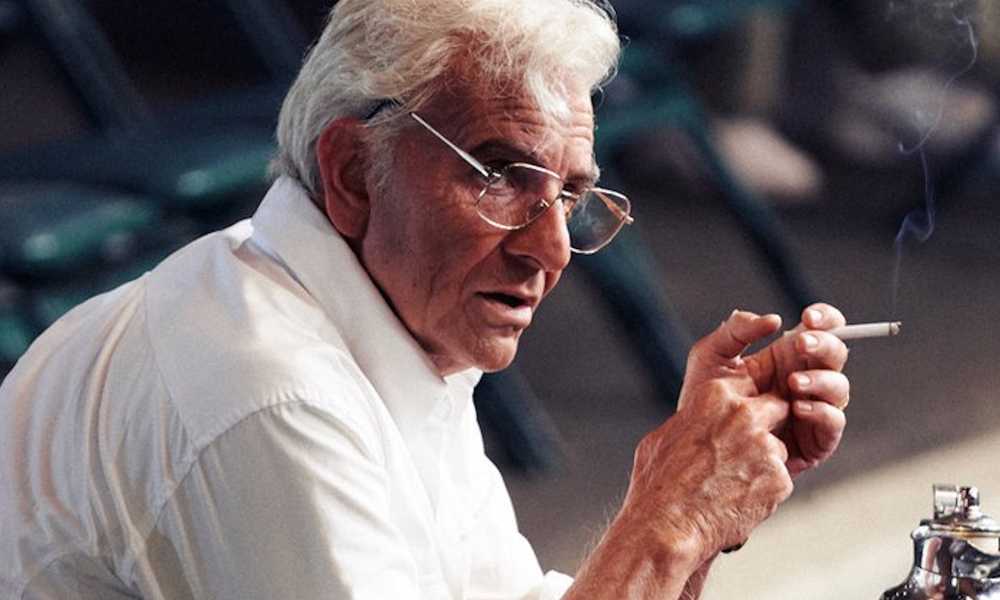As American conductor and composer Leonard Bernstein, Cooper shares the screen with Carey Mulligan to tell Bernstein’s closeted tale…
“If you’re not careful, you’re going to die a lonely, old queen.”
When Bradley Cooper took on the reimagining of A Star is Born in 2018, it was an audacious experiment for a first-time feature film director. Sharing the spotlight with Lady Gaga helped to propel the Academy Award-nominated actor and producer to new heights, signifying a fruitful career as a filmmaker behind the camera. However, it might come as a surprise that the former “Wedding Crashers” performer would end up beating out the likes of Steven Spielberg and Martin Scorcese for a shot at directing a biographical film about closeted conductor Leonard Bernstein in the new Netflix film, Maestro.
Maestro stars Bradley Cooper as real-life Jewish American conductor Leonard Bernstein, a closeted gay man working his way through the New York City music scene. From the beginning in 1943, we witness a young Bernstein jumping out of bed with his friend David Oppenheim (Matt Bomer) to celebrate the news that the former would lead the New York Philharmonic as a substitute for the famed Bruno Walter. Thunderous applause and critical acclaim soon flood his way, leading to more high-profile gigs.
“Lenny” to those who know him best, he is a confident young man who delights in relationships with the male musicians around him. Lenny is taken aback when he meets the talented Broadway actress Felicia Montealegre (a dazzling Carey Mulligan) while playing the piano at an industry party. The two connect almost immediately, and though Lenny must change his ways to pursue Felicia, navigating this new relationship proves difficult for the charismatic, melodic star.
The film traverses several decades through Lenny and Felicia’s marriage and life together as they see their respective careers go in multiple directions. Lenny’s queerness behind the scenes creates trouble along the way. As he gets older, Lenny’s lovers seem to stay the same age, creating rifts in his professional and personal existence.
Maestro is nothing short of magical, as Cooper’s direction leads to two of the best performances of 2023 in Cooper and Mulligan. The weight of expectations showering over Leonard Bernstein’s career makes it impossible for him to show his true colors as a gay man, never wanting to humiliate Felicia as they continue being married for the sake of their kids and fame. Though divorce would surely be on the horizon for these two, the complications of Lenny’s alcohol abuse and Felicia’s cancer diagnosis later in life lead to more obstacles for the unconventional couple that binds them together.

Cooper and Mulligan find ways to demonstrate Lenny and Felicia’s struggles through pitch-perfect acting prowess. It’s a cliché to say the two become their respective characters, yet this sentiment is entirely accurate here. Cooper and Mulligan are not acting in the movie…they are the movie. Rapid-fire dialogue pours straight out of old New York, and their natural chemistry makes for a fascinating biopic. Though their marriage dissolves primarily due to Lenny’s predilection for young male musicians and the rumors surrounding his infidelities, it’s clear that love still surrounds them. It’s a tightrope walk for both actors to convince the audience that this relationship transforms the two into best friends willing to make their lives work, but Cooper and Mulligan are up to the challenge.
The happiest moments shine brightest during the black-and-white sequences, while the couple’s marital spats and Lenny’s queerness are on expanded display by the time the film reaches full technicolor. Bernstein’s actual compositions are utilized throughout the movie to give a unique score to a project embroidered in lyricism and soulfulness. Post-war New York meets the 1970s in a matter of minutes, and music often follows Lenny everywhere he goes.
Maestro focuses its attention on the Bernstein family and their complicated lives, but at its heart, it is a queer tale of adversity and expertise. The film comes to a head during many of Leonard Bernstein’s famous conducting moments and his acclaim for composing well-known music for the iconic On the Waterfront and West Side Story. Just as the pinnacles of his career seem to be around the corner, Lenny provides more astounding renditions that make for cinematic orchestral moments under Cooper’s immense filmmaking competence.
There’s a sort of musicality to Bradley Cooper’s direction. Maestro couldn’t be farther apart in scale and tune than A Star is Born, and the director has found his sweet spot. He clearly has an affinity for musical ambitions mixed with dramatic flair, with the use of top-notch sweeping overhead camera motions and montages. Seamless transitions make for an entertaining look at their courtship, the development of Felicia’s acting career, and Lenny’s musical ambitions. Fantastical dance sequences are reminiscent of Gene Kelly in “Singin’ in the Rain,” though in Maestro, there’s always an underlying suspicion in Felicia’s point-of-view during these moments.
A supporting cast including out actor Matt Bomer, Maya Hawke, and comedian Sarah Silverman enhances the screenplay by Bradley Cooper and Josh Singer (Spotlight). Playing the role of Lenny’s sister Shirley, Silverman warns Felicia at one point, “There’s a price for being in my brother’s orbit,” a phrase that echoes with every turning point of Felicia and Lenny’s time together. The conducting scenes, particularly Mass, demonstrate Lenny’s power as a leader and Cooper’s determination to get the part just right. Sweaty, controlled, and unbelievably ferocious.
Leonard Bernstein and Felicia Montealegre were real people who endured real struggles as a married couple vying for infamy and riches. In his heart, Bernstein was a queer man. In his marriage, he was a father and his wife’s best friend. By the time Bradley Cooper unveils Bernstein’s authentic self by showing archival footage of the maestro himself conducting during the film’s end credits, it’s clear that Maestro hits every chord perfectly to match the main characters’ inner demons. Bernstein’s same-sex affairs are hardly frowned upon from the viewer’s perspective, giving legitimacy to the composer’s engrossing work and undeniable personal flaws.
It is a monumental achievement in queer representation and talented scope.






POST A COMMENT